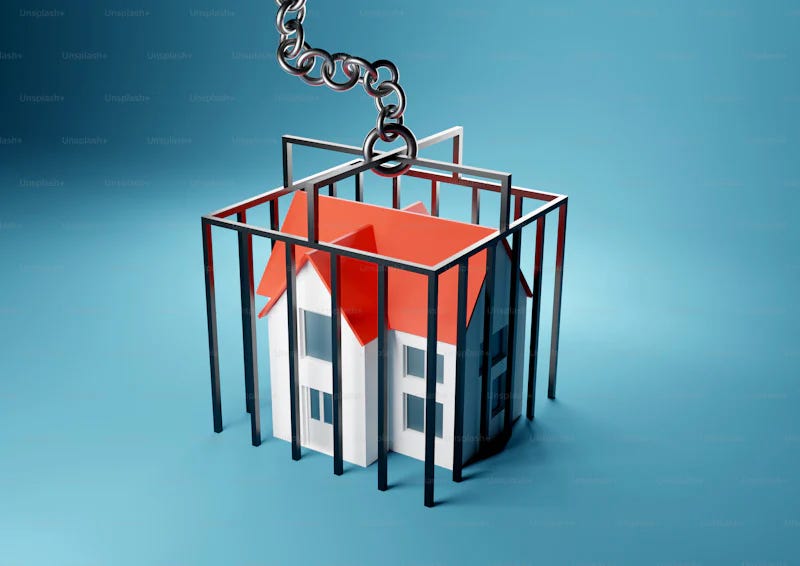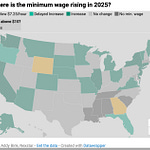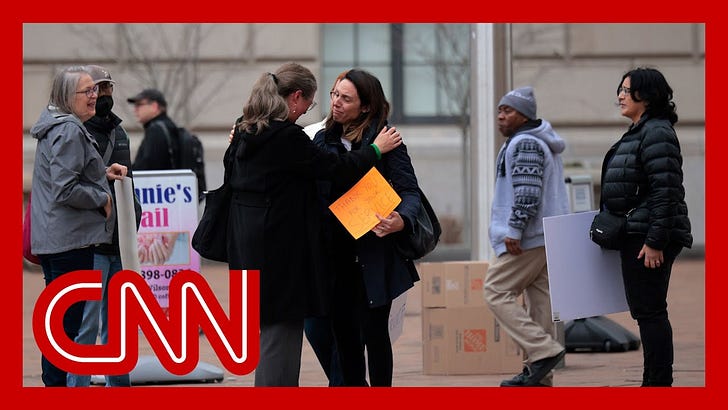This post goes out to both free and paid subscribers, but if you are not already a paid subscriber and value this effort and our growing community, please consider upgrading to a paid membership. Thanks in advance for your financial support of my work —it’s what allows me to keep researching and writing!

“The more you pay in rent, the more likely you are to have bad health and die earlier, a recent study found…The study, called "The impacts of rent burden and eviction on mortality in the United States," was published in the journal "Social Science and Medicine" in January [2024] . To reach their findings, researchers studied 38 million eviction records from 2000 to 2019.” Columbus Dispatch, February 18, 2024
Stress can make you physically and mentally ill. Living in poverty is exceedingly stressful, whether it results from allocating too much of your income to rent or mortgage payments, losing your job, applying for government aid, sudden illness or any combination of these issues and others. It results in an unseemly number of us living in the U.S. who are just one run of bad luck or accident from poverty. And that alone is stressful.
According to several recent studies, like the one discussed in the Columbus Dispatch article mentioned above, not having enough money to pay your bills can make you sick now, and shorten your lifespan. Poverty isn’t just an anxious moment or two, it can kill you.
I wrote about the ripple effect of rising rents earlier this year, (yes, rents are still rising across most of the U.S., just at a slower pace). According to a CBS News report from a few months ago, between 2019 and 2023 rents soared 30.4% across the country, but wages only rose 20.2% during the same four years. Larger cities, like Atlanta, Miami, Phoenix, Tampa, Baltimore, Cincinnati, Las Vegas, New York and San Diego saw the largest gap between rent increases and wage growth. It’s not surprising that when rent prices go up and wages don’t keep pace, evictions also go up and many times, homelessness follows. It’s a downward spiral that can only be broken with some type of personal financial windfall or, more likely, strong, government or charitable help.
I also explored some of the reasons why rents are rising in a post written nearly a year ago, and at that time, the main reason was private equity firms and other Wall Street financial institutions buying up single family homes, mostly in poor to middle-class neighborhoods. The companies then flip the homes to rentals, use algorithms designed to extract the highest possible rents for a given area and use this information to “coordinate price hikes” among owners:
One of the major players is Wall Street investment companies that buy up smaller homes in slightly less desirable neighborhoods, almost exclusively with cash offers, and then rent them at exorbitant rates. In the first quarter of this year [2023], investors bought nearly 18% of the starter home market, limiting the supply for individual buyers and driving up prices for the remaining homes for sale.
Corporate landlords have not only hiked rents since they started their residential home buying spree during the pandemic, but their property management strategies, like the least possible maintenance and being quick to evict, have combined to help their profits soar for both single family homes and large apartment complexes. For example, as reported in a July, Americans for Financial Reform blog post:
“...in the first quarter of 2024, the six largest publicly-traded apartment companies saw their combined net incomes climb by nearly $300 million, while homelessness and housing unaffordability have risen to record levels.”
To counter what some have called “corporate landlord profiteering”, President Biden recently proposed a 5% per year cap on annual rent hikes by companies owning 50 or more housing units. Because housing costs are believed to be a major driver of inflation, this attempt to curb the rising cost of housing is a big part of curbing inflation. According to a July AP article
“In recent months, housing has been a primary contributor to keeping the consumer price index elevated at 3% annually.”
It’s not surprising that even before President Biden officially announced his modest proposal to temper out-of-control profiteering and inflation, he was bombarded with criticism from the usual suspects. Watch out when you try to control a major industry’s profits, even if it is only through taking away their tax credits if they exceed a 5% annual raise in rents. For example, the CEO of the National Multifamily Housing Council, a nonprofit that advocates for the apartment industry, came out against President Biden’s proposal by attacking what it isn’t:
“This is not going to create a single unit of housing — which is what is needed to create more housing opportunities for Americans,” said Sharon Wilson Géno, CEO of the National Multifamily Housing Council [NMHC] “This is really a campaign-driven piece of rhetoric.”
We know that a tiny, round-about cap on price-gouging will not directly create more housing, and it’s not supposed to — this proposal is just one of several tools to help bring down the cost of living for many Americans who are struggling with housing and other costs. The Biden administration has invested heavily in the creation of multifamily housing, and the investments include tax breaks for these same companies. I’m waiting for the NMHC and others criticizing this idea to come up with a valid argument against capping egregious rent hikes instead of this embarrassing statement that avoids the issue. We’re smarter than this.
__________________________________________________
I’d love to hear your thoughts on the rising cost of housing, the greed of corporate landlords, physical and mental illnesses and shorter lifespans arising from simply being poor…You have the floor!
Don’t forget to sign up for a FREE or PAID Subscription right here:













Share this post